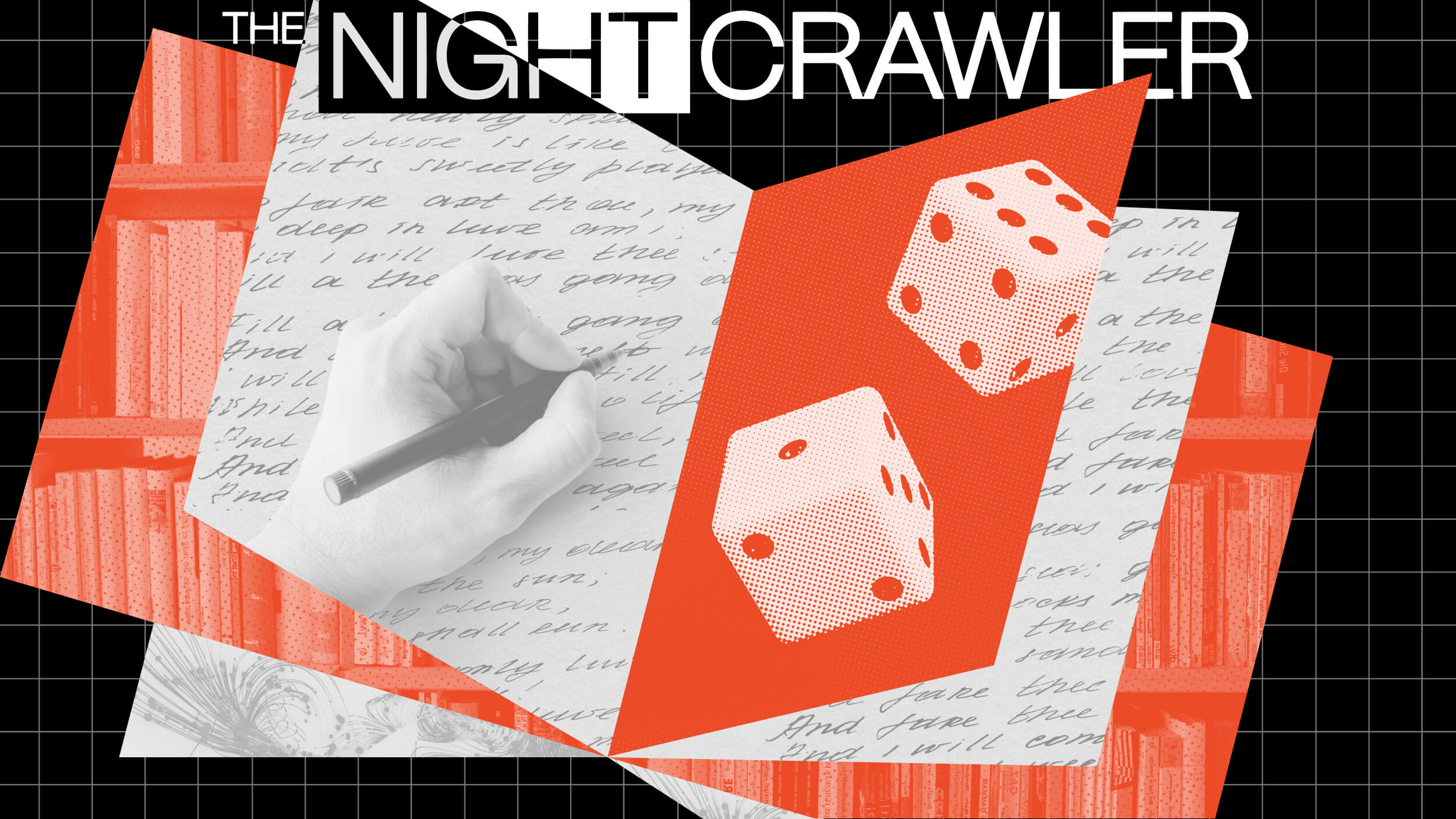American culture has been predominately representative of white stories for most, if not all, of its history. The majority of American movies lead with white actors, even when it’s not appropriate. Most recent and most famous, was Cameron Crowe’s 2015 rom-com Aloha, when Emma Stone was cast as Hawaiian. Then there was the cast of Exodus, which takes place in Egypt, yet has a white cast. And the early days of Hollywood… let’s not even go there. The shame is too much. Though director Ridley Scott has defended his decision and Cameron Crowe has apologized, people remain relatively mad about both. And rightly so.
When John Leguizamo (of Romeo & Juliet, Moulin Rouge, Bloodline, and in the soon-to-be-released The Infiltrator), first tried to get his foot in the door of Hollywood, he came across the same problems most minorities face. There were not many parts available for non-white actors, and even fewer three-dimensional roles.
Leguizamo, and many actors like him, had to fight for every role he could get. Viola Davis had a wonderful moment that pushed these issues to light, when she won Outstanding Lead Actress for How to Get Away With Murder, a role that actually gave her a chance to show she could win an Emmy (her talent was always there, wasted on bit parts). Leguizamo took a different route, not waiting for opportunity but taking it. He wrote the roles he wanted for himself.
But things are slowly changing. The Black Lives Matter movement is still forcing our eyes open in the best possible, albeit tragic, way, and with police dash-cams and body-cams, it’s harder to deny the truth that minorities have always know and lived. But the divide is slowly closing, despite many in the Trump fan base trying to push it wider. Things have changed over the last few years – the headlines sound worse, but the fact that these things are on the agenda is a sign of the nation’s progress. The spread of smartphones and social media has allowed the issues to come forth, and Leguizamo is very optimistic about this. Someone in New York can be a witness to an event in Florida, as social media can broadcast it all in real time. Because of this freedom of observation, people are coming together more than ever, and steering the country in a more unified and progressive direction.
The Infiltrator is out now and stars John Leguizamo, Bryan Cranston, Diane Kruger and Amy Ryan.
John Leguizamo: As a Latin person, you know, minorities, black people have to do it as well. We have to immerse ourselves in white culture and learn about white culture. And it’s all we were taught in school and in movies. And so we learn but it’s not reciprocal, you know. It’s not a reciprocal thing that happens that white culture wants to learn about Latin culture or black culture. But there are a few. There are a few. Jane Elliott being one of the great ones. I mean tackling it in my industry it’s like Hollywood is so – Oscar is so white that which was the symptom of a disease which is Hollywood is not making movies or being conscious about including Latin and black people in their movies when we’re almost 50 percent of the population. So it’s a very unbalanced representation of reality and causes great harm, especially for youth who need to see themselves in movies. I think it’s about the work needs to be done is not so much understanding people of different ethnic backgrounds as much as giving them the jobs. That’s really it because we’re all really the same, you know. We’re just slightly different, you know, flavors and slightly different colors. But I think it’s all about giving those jobs and people rise up to the occasion. I mean that’s all you’ve got to do.
And what’s interesting because I just did my show – I’m doing it in Berkley and they brought this group of high school kids and some of them were Latin and they were just flabbergasted the kids seeing a Latin person performing on stage. They’d never been to the theater, never seen a Latin person on stage and it just changed their whole entire perspective. They all of a sudden felt like they could do it, you know. And it was a beautiful thing and despite organizations opening up and giving the opportunities that’s how these things happen. It’s kind of like Viola Davis said the reason she won that Emmy was because somebody finally gave her the role that she needed to win. Because she’s always had the same talent and she’s always been around but finally somebody wrote the right role that was ample enough for a person of color to win an Emmy.
I mean there’s a lot of issues or aspects of myself because, you know, I’m also from a lower class socioeconomic group and that has a lot to do with differences too. I mean the fact is that Latin and black people are mostly in the lower socioeconomic group. So you have that cultural gap. It’s an economic gap. Culturally I mean I guess – so the socioeconomic group in America becomes also your ethnic and cultural group and so yeah. When I’m in certain groups that are mostly predominantly white you want to appear predominantly white so you try to use their lingo and try to use their terminology and the way they speak, you know. Like I’m talking to you a little bit more right now. I’m talking to you with my whiter side of myself more. And then when I’m with my friends from high school and we’re all like Latin and from a socioeconomic group, you know. We’ll go back to the lingo that we used like a little more street, a lot more ubonic, a lot more Latin words because we know we understand each other and there’s shorthands. And that’s what we do, you know.
I mean luckily, you know, when I was trying to be an actor it was really difficult because they weren’t really – when I started out they weren’t really casting Latin people so and I had worked real hard to cover, you know, to pass is what I would say more. Pass as opposed to cover. But I’m sure that goes on too. And I had to try to clean my speech, change it, you know, so that it didn’t have such a street accent. But it didn’t matter because I was still recognized visually as a Latin person. So even if I changed the way I sounded or the way I behaved it didn’t matter because I wasn’t going to get cast in those roles anyway because I identify as a Latin person. So then I gave up and I was like you know what? Forget it. I’m not going to try to fit in. I’m going to stay the way I am and I’m going to write for my culture. So I stated to write for people like myself who grew up the way I grew up. And so people of my socioeconomic group and black people and Latin people and some white people that grew up in my socioeconomic group identify with me. And that’s the people I was talking to.
I’ve been an outsider, you know, and continue to be an outsider but – and being an outsider always gives you a great artistic point of view because you can see things and comment on things. And then trying to be white made me an outsider in the hood because I’m no longer as hoody as I used to be. So I can hear that I sound very different so that makes me an outsider even in my own community. So then I can watch them too, you know, and you can become a great observer. And the outspokenness just came out of – I’m not sure where that came out of. Mostly a necessity, a need to hear articulated my experience that I wasn’t hearing articulated anywhere. So I think I became sort of a spokesperson just by wanting somebody to fill in that space for me and nobody was filling it for me so I wanted to hear and see somebody explain what it’s like to be a person like myself going through the things that I’m going through. We’ve known for decades that black people and Latin people have been accosted harshly by police and nobody believed it. Nobody believed it and they just, you know, they were crying wolf. And now because of technology and cameras everywhere you see what’s going on. It can’t be hidden anymore.
Yeah so no, I don’t think America is as divided as it was in my childhood. I think it’s much more unified and much more open and much more inclusive and consciously trying to be inclusive. I mean there are some forces, Trump supporters being one, that feel that xenophobic and wanting to, you know, marginalize people and separate. But I think the rest of the country is much more progressive and things are changing and people do care a lot more. And I think America is one of the more progressive, it’s still the greatest country in the world that way, you know. It’s a place where I mean our president is black. We’re going to have a woman president next. I mean we had two Latin candidates even though they were on the wrong side. We had a Jewish candidate as well. I mean it’s been an incredible electoral cycle, really exciting and really progressive. So I think things are way different. And the beautiful thing is that Latin people are going to decide who the next president is and we count and we’re important and to me that’s part of the new America.





